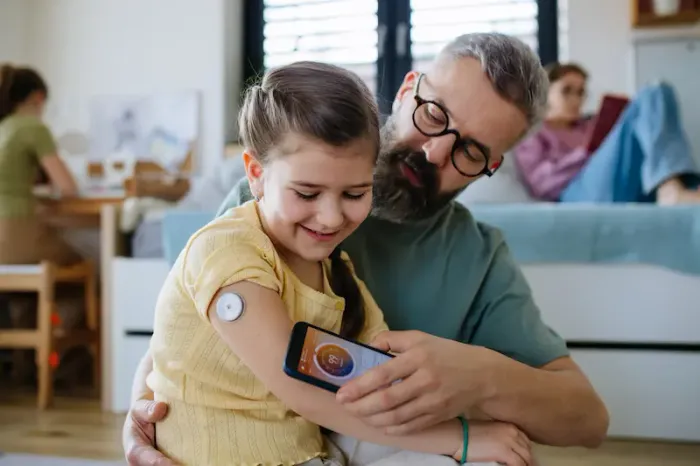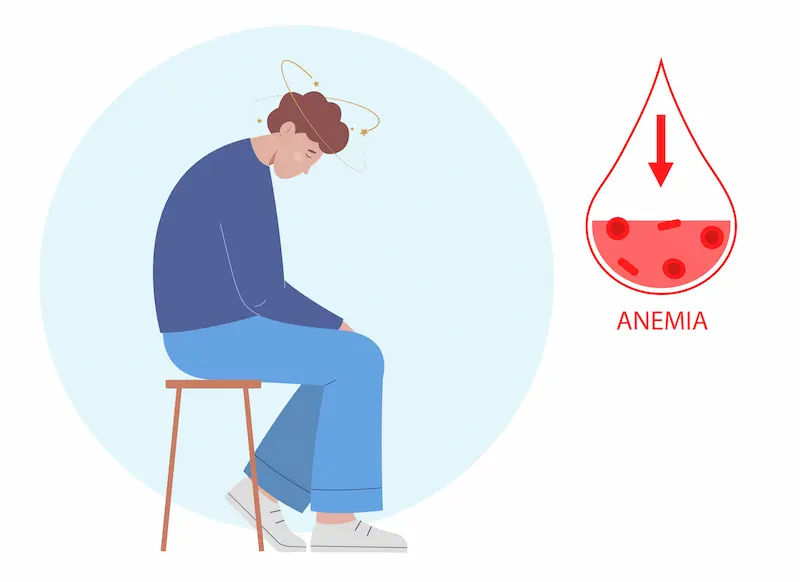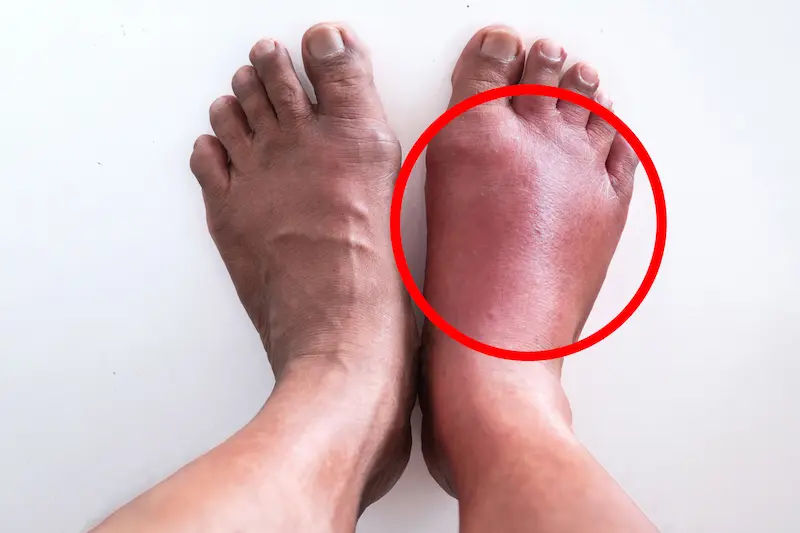Diabetes Management in Children
Know about the diabetes management for your child, types, signs and symptoms, causes and risk factors, and how it affects your child's health. learn about the disease management.

Written by Dr. Rohinipriyanka Pondugula
Reviewed by Dr. Dhankecha Mayank Dineshbhai MBBS
Last updated on 13th Jan, 2026

Introduction
Diabetes is a lifelong condition that affects how the body processes sugar (glucose). When it comes to children, managing diabetes can feel overwhelming for parents and caregivers. However, with the right knowledge, support, and lifestyle adjustments, children with diabetes can lead healthy, active lives.
This guide will help you understand diabetes in children, its symptoms, causes, and practical ways to manage it effectively.
Understanding Diabetes in Children
Two main types of diabetes affect children:
1. Type 1 Diabetes – This is the most common type in children. It occurs when the pancreas produces little or no insulin, a hormone needed to regulate blood sugar.
2. Type 2 Diabetes – This is less common in children but is increasing due to rising obesity rates. Here, the body either resists insulin or doesn’t produce enough.
Both types require careful management to prevent complications.Consult the Best Endocrinologist for Personalised Advice
Signs and Symptoms of Diabetes in Children
Recognising the symptoms early can help in timely diagnosis and treatment. Watch out for:
• Frequent urination – The child may need to use the bathroom often, even at night.
• Increased thirst and hunger – Despite eating, the child may feel constantly thirsty or hungry.
• Unexplained weight loss – Even if eating normally, the child may lose weight.
• Fatigue and irritability – Low or high blood sugar can cause tiredness and mood swings.
• Blurred vision – High blood sugar can affect eyesight temporarily.
• Slow-healing wounds – Cuts or infections take longer to heal.
If you notice these signs, consult a doctor immediately. Early diagnosis can prevent serious complications.
Causes and Risk Factors
Type 1 Diabetes
It includes:
• Autoimmune reaction – The immune system mistakenly attacks insulin-producing cells.
• Genetics – A family history increases the risk.
• Environmental triggers – Viral infections may play a role.
Type 2 Diabetes
It includes:
• Obesity – Excess weight increases insulin resistance.
• Unhealthy diet – High sugar and processed food intake contribute.
• Lack of physical activity – Sedentary habits worsen the condition.
• Family history – A parent or sibling with diabetes raises the risk.
How does Diabetes affect a Child’s Health?
If not managed well, diabetes can lead to:
• High or low blood sugar emergencies (hypoglycemia or hyperglycemia).
• Long-term complications like heart disease, kidney damage, nerve problems, and vision loss.
• Emotional stress – Children may feel different from their peers, leading to anxiety or depression.
However, with proper care, these risks can be minimised.
Managing Diabetes in Children
It includes:
1. Blood Sugar Monitoring
• Check blood sugar levels regularly using a glucometer or continuous glucose monitor (CGM).
• Keep a log to track patterns and adjust treatment accordingly.
2. Insulin Therapy (for Type 1 Diabetes)
• Insulin injections or an insulin pump may be needed.
• Work with a doctor to determine the right dosage and timing.
3. Healthy Eating Habits
• Balanced meals – Include whole grains, lean proteins, healthy fats, and fiber.
• Limit sugary foods – Avoid sodas, candies, and processed snacks.
• Portion control – Helps maintain stable blood sugar levels.
4. Regular Physical Activity
• Exercise helps control blood sugar and improves overall health.
• Encourage sports, dancing, or outdoor play for at least 60 minutes daily.
5. Emotional Support
• Educate the child – Help them understand their condition in an age-appropriate way.
• Encourage open conversations – Let them express fears or frustrations.
• Support groups – Connecting with other families facing diabetes can be helpful.
6. Regular Doctor Visits
• Routine check-ups help monitor growth, blood sugar control, and detect complications early.
When to Seek Emergency Help?
Call a doctor immediately if your child shows:
• Severe hypoglycemia (low blood sugar) – Dizziness, confusion, seizures.
• Diabetic ketoacidosis (DKA) – Nausea, vomiting, rapid breathing, fruity-smelling breath.
Final Thoughts
Managing diabetes in children requires teamwork between parents, doctors, and the child. While it may seem challenging at first, with the right care, children with diabetes can thrive just like their peers.
Consult the Best Endocrinologist for Personalised Advice
Consult the Best Endocrinologist for Personalised Advice

Dr G Prathyusha
General Physician/ Internal Medicine Specialist
6 Years • MBBS DNB (Family medicine), CCEBDM (Diabetology), PGDGM (Geriatrics), Primary care Rheumatologist.
Bengaluru
PRESTIGE SHANTHINIKETAN - SOCIETY CLINIC, Bengaluru

Dr. Amrutha G
General Physician/ Internal Medicine Specialist
10 Years • MBBS,DNB(family medicine), Diabetologist-CCEBDM,CCGDM
Bengaluru
Apollo Clinic, Sarjapur Road, Bengaluru

Dr. Mary Susan K S
General Physician/ Internal Medicine Specialist
13 Years • MBBS, MD INTERNAL MEDICINE
Bengaluru
Apollo Clinic, Sarjapur Road, Bengaluru
(25+ Patients)
Dr Sumanth R
General Physician
2 Years • MBBS
Bengaluru
PRESTIGE SHANTHINIKETAN - SOCIETY CLINIC, Bengaluru

Dr. Shruthi B
Endocrinologist
20 Years • MBBS,MD ( GEN MED) DM (ENDOCRIONOLOGY)
Bengaluru
Apollo Clinic, JP nagar, Bengaluru
Consult the Best Endocrinologist for Personalised Advice

Dr G Prathyusha
General Physician/ Internal Medicine Specialist
6 Years • MBBS DNB (Family medicine), CCEBDM (Diabetology), PGDGM (Geriatrics), Primary care Rheumatologist.
Bengaluru
PRESTIGE SHANTHINIKETAN - SOCIETY CLINIC, Bengaluru

Dr. Amrutha G
General Physician/ Internal Medicine Specialist
10 Years • MBBS,DNB(family medicine), Diabetologist-CCEBDM,CCGDM
Bengaluru
Apollo Clinic, Sarjapur Road, Bengaluru

Dr. Mary Susan K S
General Physician/ Internal Medicine Specialist
13 Years • MBBS, MD INTERNAL MEDICINE
Bengaluru
Apollo Clinic, Sarjapur Road, Bengaluru
(25+ Patients)
Dr Sumanth R
General Physician
2 Years • MBBS
Bengaluru
PRESTIGE SHANTHINIKETAN - SOCIETY CLINIC, Bengaluru

Dr. Shruthi B
Endocrinologist
20 Years • MBBS,MD ( GEN MED) DM (ENDOCRIONOLOGY)
Bengaluru
Apollo Clinic, JP nagar, Bengaluru




